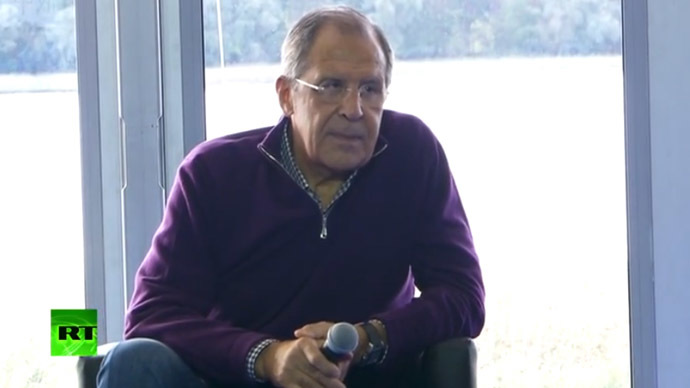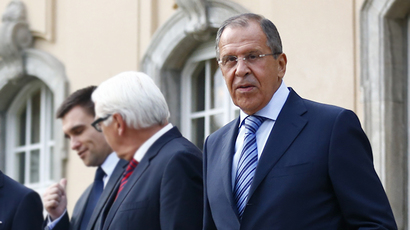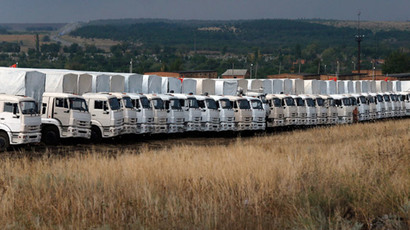Anti-Russian rhetoric pre-dated Ukraine crisis, Moscow does not want spats - Lavrov

Russia’s Foreign Minister Sergey Lavrov said that the West started its “irrational attacks on Russia long before” this spring’s events in Ukraine, but insisted that Moscow is seeking to avoid “spiraling sanctions” with the EU and the US.
“We are not interested in confrontation, we are not interested in a sanctions spiral,” the minister said in a speech to an audience at the Lake Seliger youth camp in central Russia.
“I can only note that long before events in Ukraine the West’s attacks on Russia assumed an irrational form. It all started long before this spring.”
Lavrov accused Western political leaders of “stirring up” anti-Russian feelings among their electorates, saying that their attitudes towards Russia “require a reevaluation.”
“Political leaders in the West incite public opinion, and then claim it is the people who are forcing them to take anti-Russian measures.”
“I think the reason that Russia is under such heavy pressure is that, more than any other country, we are not afraid to talk about our interests and express our opinions. At the same time, we do not claim that they are the absolute truth, and we are open to listening to others. But we hope to get the same in return, and rely on our independence not being punished by others,” Lavrov said.
Lavrov said the United States and other Western countries were “going against the course of history” by attempting to “artificially” hold on to their influence.
“Some countries are trying to restrain the emergence of an egalitarian international arena. And if more unilateral sanctions are imposed on us to this end, we will take measures in response.”
He also claimed that the West's desire to maintain its status as the ultimate international arbiter was a "roadblock" to solving global problems, such as "terrorism, drug trafficking, spread of weapons of mass destruction, food shortages, epidemics, illegal migration and regional conflicts."
Lavrov, who has served as Russia’s foreign minister for a decade, said that the old “Cold War blocs” are no longer relevant in a “multipolar world,” and instead called for an emergence of “flexible and networked” alliances.
“We do not consider it a tragedy if some of our partners disagree with us on certain issues – as opposed to NATO, where any step out of line is punished immediately.”
When asked why Moscow hasn’t recognized the self-proclaimed Donetsk and Lugansk People’s Republics during the Q & A that followed the speech, Lavrov told his audience that Moscow was not interested in the breakup of Ukraine, but said that he hoped the anti-Kiev movements would secure greater rights for Russian-speaking minorities in the country.
“The gains that have been made by these republics should consolidate the region in their quest for what is most important – that they can continue living in these areas as did their ancestors, speaking Russian, teaching their children in Russian schools, and electing their own governors, as well as having the chance to retain some of the taxes they pay as a result of their economic activities.”
He also said that any settlement must be signed after a
ceasefire, not “imposed” by Kiev “under the cover of
bomb blasts.”
When questioned about the touted use of US-made fuel in the
country’s four active Soviet-built nuclear power plants, Lavrov
warned that the changeover would be “unsafe,” as the fuel rods
are incompatible.
“Such experiments could end badly, particularly in Ukraine,
where the memory of Chernobyl is still fresh,” Lavrov said.














